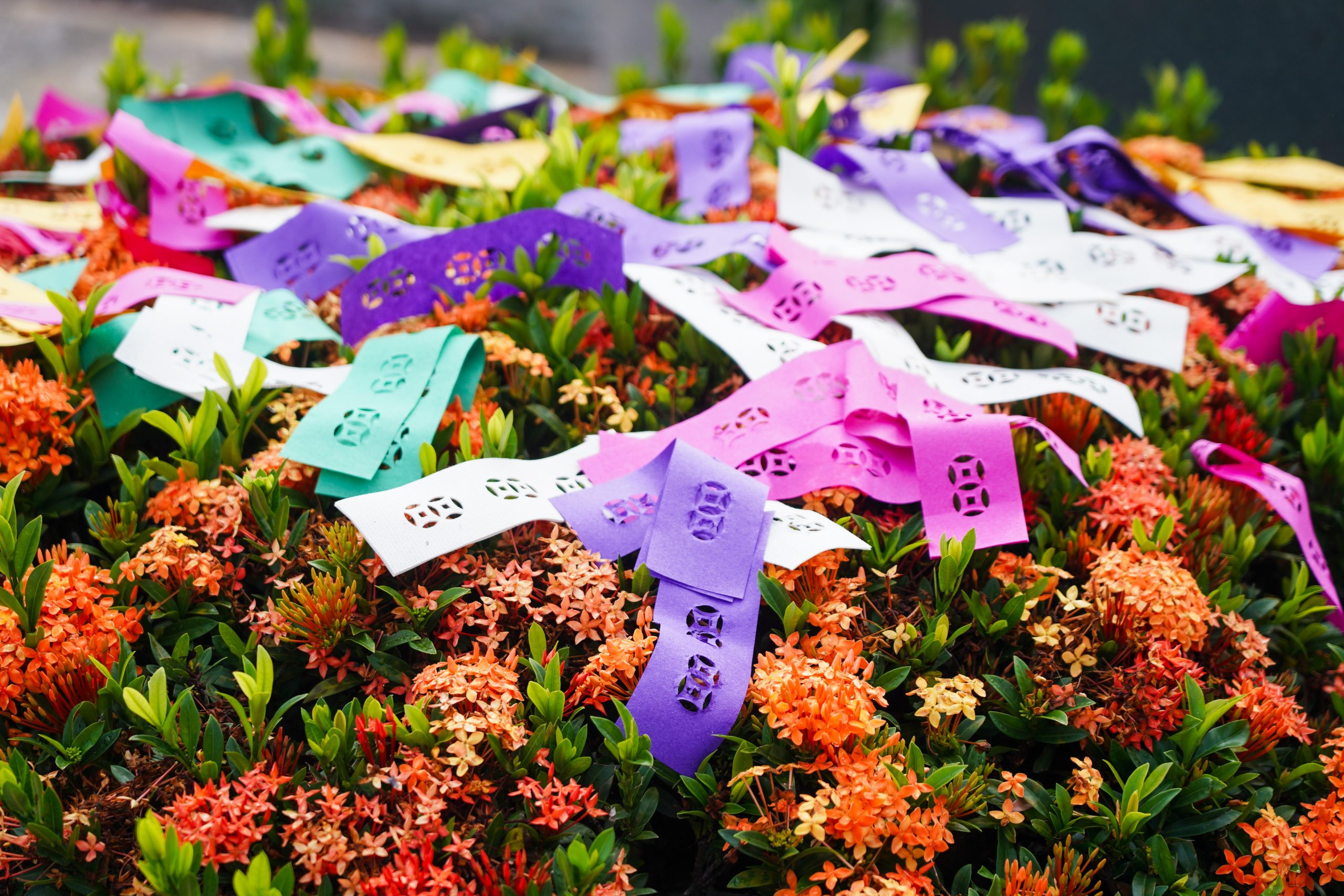Treating the Dead as in Life: Reflecting on the Meaning of Ritual

Have you noticed that Chinese people, compared to many other ethnic groups, especially emphasize the remembrance and worship of ancestors? Even though other ethnic groups may also remember deceased relatives, few exhibit the strong sense of ritual like the Chinese, not only offering various foods that the ancestors enjoyed during their lifetime but also crafting paper effigies of everyday items for their use in the afterlife.
Traditional Chinese ancestral worship rituals are among the most important activities in Chinese society, sometimes even surpassing various religious events. Even during festivals not primarily centered around ancestral worship, we still offer festival foods to our ancestors. During the Mid-Autumn Festival, we eat mooncakes; during the Dragon Boat Festival, we eat rice dumplings; during the Lantern Festival, we eat tangyuan. We never forget to offer these to our ancestors.
For feast days directly related to their ancestors, such as the birth and death anniversaries, Qing Ming Festival, Chong Yang (Double Ninth) Festival, and the Yu Lan Pen Festival, and the Zhong Yuan Festival (commonly known as the Ghost Festival), the Chinese people are even more serious about their observances. Traditional Chinese communities hold elaborate rituals for several days, sparing no expense to fill tables with offerings, both vegetarian and non-vegetarian, along with mountains of joss paper money, effigies, spirit houses, and even paper effigies of children. We try our best to fill up all parts with both the visible (offerings) and invisible (where do the paper effigies go after being burnt?) aspects.
Why do Chinese people have such social traditions?
In the “Doctrine of the Mean” from the Book of Rites, there is a phrase: “Thus they served the dead as they would have served them alive; they served the departed as they would have served them had they been continued among them – the height of filial piety.” It means that we should respect and love our deceased parents and ancestors as if they were still alive. Therefore, the various ancestral worship practices of the Chinese stem from this reverence.
The same principle applies to funeral customs. The most direct funeral customs that serve the dead as if they were alive include welcoming guests into the house, washing the face with purchased water, and offering food. Regardless of whether one believes in ghosts or spirits, the fundamental idea behind funeral customs is the love for the departed as if they were alive. The focus of offering sacrifices and crafting joss paper spirit houses is not whether “the ancestors can actually eat or receive them” but rather expressing our love and remembrance through these actions.
Although the emphasis of “serving the dead as if they were alive” lies in “filial piety” due to Confucian emphasis on family and human relationships, the “benevolence” they stress is meant to continuously expand outward. Hence, sayings like “respect your own elders as well as others’, care for your own children as well as others'” emphasize extending love beyond immediate family. Therefore, we also worship deceased teachers, friends, and even unfamiliar “good brothers.” Worshipping “lonely spirits and wandering ghosts” should stem from an extension of compassion toward society rather than fear of mysterious forces or intent for exchange conditions.
In studying funeral customs, the most common question is often “how is this custom or ritual performed?” rather than “what is its origin? Why is it done this way?” However, understanding the origin and reasons behind a custom is crucial before determining how it should be done. We often say “preserve Chinese cultural traditions,” but if only the forms are preserved without caring about or misunderstanding the underlying spiritual values, it loses its meaning.
The topic of this column is “Treating the Dead as in Life: Reflecting on the Meaning of Ritual.” “Reflecting on the Meaning of Ritual” emphasizes that when we encounter or practice a certain ritualr1, we should consider its “meaning.” “Meaning” represents not only “significance” but also “emotional significance” and “moral significance.” “Significance” refers to the spiritual values that etiquette intends to convey. “Emotional significance” is how we establish good relationships and friendships with others through ritual. “Moral significance,” the most frequently overlooked but crucial aspect, is that ritual must conform to the public norms of society and convey positive moral values. However, societal values may change with the times, so when a particular ritual can no longer embody the noble values of the current society, it should be discarded or modified.
Therefore, the purpose of this column is to maintain the compassion behind “treating the dead as in life” and to reflect together on the meanings, emotional significance, and moral significance behind various funeral customs, thus better promoting the preservation and inheritance of Chinese traditional cultural values.
Nirvana Care Professional Department – Ritual & Culture Management
Exploring the impact and development of Chinese culture on Malaysian society and focusing on the origins of the community’s funeral cultures, we have borrowed and adapted ancient customs to nurture the development, cultivation, deeper understanding and growth of Nirvana Care’s bereavement care services.
About the Author
Ng Ai Ling, Nirvana Care Professional Department – Ritual & Culture Management
Ms. Ng has a master’s degree in Chinese literature from Taiwan’s National Dong Hwa University and many years of experience in writing and research. She is currently a newspaper columnist and has been publishing articles on Hong Kong and Taiwan online platforms for many years.
Nirvana Memorial Park: Choosing my final resting place
Nirvana Memorial Park: Choosing my final resting place Have you given thought about where you will be laid to rest after you depart from this life? Would you prefer your remains to be buried, or be eternally remembered at a grand and dignified hall of a columbarium?...
Pet Funeral Guide Malaysia
Funeral Arrangements for Pets in 2021: A Guide There’s nothing quite like the special bond we share with our furry companions. They’ve been with us, provided much joy and comfort for us, accompanied us through dark times and shared many happy moments with us. When the...
Is there need for Nirvana Life Plan Funeral Arrangement
Funeral Arrangements: Is There A Need for A Nirvana Life Plan? You might think, ‘When I go, I just go’, and I can leave all the other matters to my loved ones to take care of. Well, technically, you can, but you can also pre-plan what happens after you depart, right...
Why is Funeral Pre-Planning Important in Malaysia
Funeral Arrangements in Malaysia: Why is Funeral Pre-Planning Important. We often think it’s taboo to discuss death and after-life, and we think that when the time comes, someone will take care of our funeral matters. However, we all have given it some thought, how...
The Ultimate Guide to Funeral Arrangements in Malaysia
Losing a loved one is a distressing experience to deal with. This is because the passing of a dear friend or family member is something you can never truly prepare for no matter how much you try. Moreover, it can get a little confusing as well when you’re forced into...
Nirvana Malaysia: Engaging The Best Funeral Parlour Before Death
While death is still considered to be a taboo subject across many cultures or countries, we can also see a shift in perspective of people who’d choose to plan for their own funeral. This happens due to a variety of reasons, be it budgeting or convenience. This change...
5 main advantages of pre-planning
5 main advantages of pre-planning for yourself You assume financial responsibility of your own funeral When the unthinkable happens, the financial responsibility of your last rites now falls on your family. The average funeral is priced upward of RM20,000 excluding...
Why make offerings of light?
Why make offerings of light? In its most basic context, the act of making an offering in Buddhist tradition enables one to practice generosity in giving, to express gratitude and respect, and to contemplate on the life sustaining law of interdependence. In Buddhist...
The Feng Shui principles behind Sheng Ji
The Feng Shui principles behind Sheng Ji For the benefit of the layperson, the metaphysical art of Feng Shui can basically be divided into two; namely Yin House Feng Shui and Yang House Feng Shui. In a nutshell, Yin House Feng Shui is the practice of geomancy for the...
Ancestral Tablets
The significance of ancestral tablets Ancestor worship is a practice that occupies a supreme role in the religious and social life of Chinese society. Deeply rooted in the all-important virtue of filial piety, much of its associated rites have remained unchanged since...


























